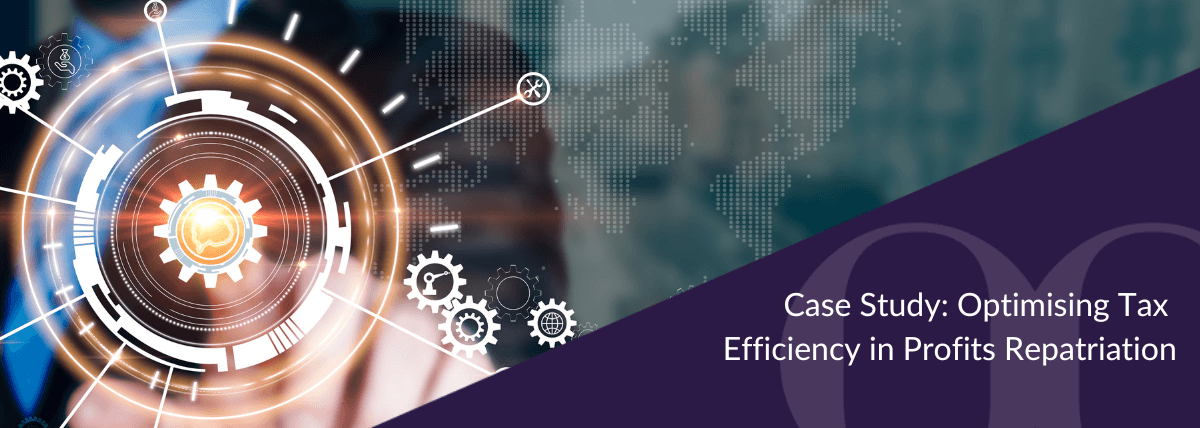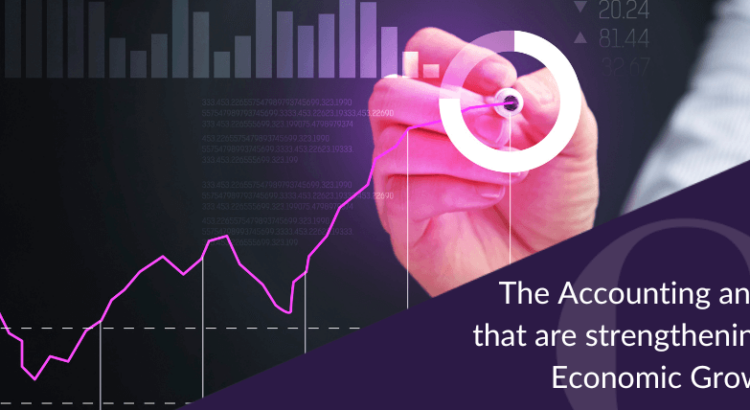As a global hub for trade, finance and technology, Singapore presents a wealth of growth prospects for businesses looking to expand throughout Asia. Its high-income economy, low corporate tax rate and abundance of business incentive programs (such as the tax exemption scheme for new companies) further enhance its appeal in the eyes of foreign investors.
The Monetary Authority of Singapore has predicted that Singapore’s economic growth will slow down in 2023, which means your organisation’s resilience is now vital. Building this required resilience necessitates a robust understanding of the latest trends in tax and accounting.
Particularly in the face of increasing expectations for environmental, social and governance (ESG) action – bolstered by the government’s newly shortened timeline for achieving net zero emissions – prompting finance teams to elevate their sustainability reporting.
BoardRoom Singapore’s Director of Accounting, Yang Shuzhen, discusses the most significant tax and accounting trends in 2023 and the strategies you can use to prepare for economic change.

Singapore business tax trends
The 2023 Budget contained several significant tax updates that will impact the corporate sphere. Notably, the government announced its plans to implement the Global Anti-Base Erosion rules of the OECD/BEPS two-pillar plan.
Developing tax trends in Singapore businesses therefore include:
1. The introduction of a domestic top-up tax
Under Pillar Two, the new minimum Singapore corporate tax rate will be 15% for multinational companies with revenues of at least EUR 750 million. These group entities will need to redress their profits so they are paying a minimum effective tax rate of 15%.
Countries involved in the OECD/BEPS collaboration are still deciding on their approach to implementing Pillar Two. Once the government of each country that your organisation has a presence in has announced how it will implement Pillar Two, you can decide in which country you will pay the top-up tax.
2. Preparation for Pillar Two
The best thing businesses in Singapore can do right now is to undertake an audit to identify where they are conducting their value-creation activities. It is a good time to tidy up your operations and ensure that both your value creation activities and your revenue and profits are recognised in the same country.
In Singapore, the new top-up tax is scheduled for implementation from 2025. Preparing for this change may require major adjustments to business operations, so organisations should begin the process now to ensure a smooth and successful transition.
3. Fresh tax incentives
The 2023 budget announced the following tax incentives to encourage foreign investment and economic growth:
- Corporate Income Tax rate remains the same, with the partial tax exemption on the first $200,000 of a company’s chargeable income;
- a 200% tax deduction on qualifying market expansion and investment development expenses under the DTDi scheme;
- an additional tax allowance for businesses that incur qualifying fixed capital expenditure on approved projects under the IA scheme;
- 100% IA support on the amount of approved capital expenditure and net of grants for approved automation projects;
- concessionary tax rates of 5%, 10%, 12%, and 13.5% on income from qualifying banking and financial activities, and corporate and advisory services under the FSI scheme;
- the introduction of a new Enterprise Innovation Scheme to raise tax deductions to 400% on qualifying expenditure incurred from the YA 2024 to YA 2028 on various innovation boosting activities; and
- enhancements to the double tax deduction for internationalisation DTDi Scheme.
The budget also announced extensions for a range of incentive schemes across various industries.
View our Singapore 2023 Budget Tax Highlights for a complete list of announced tax updates.
4. The Singapore GST increase
Singapore’s goods and services tax (GST) rate rose from 7% to 8% in 2023. This rise has impacted businesses in various ways, with many organisations facing increased costs across core expenses such as materials, labour, rent and utilities.
Some businesses are choosing to register for GST to claim on the GST paid for purchases. However, there are a few factors to consider to determine whether this is worthwhile for your organisation. For example, you should decide whether the associated compliance costs outweigh the benefits of claiming on taxes paid. Additionally, you must be mindful when fulfilling your compliance requirements for quarterly GST returns to avoid making an error and being penalised for it.
The GST rate is set to rise another percentage point from 2024, which means your decision to register for GST will only become more important.

Singapore accounting trends
The accounting function is quickly evolving in response to changes in economic growth and environmental sustainability matters, as well as technological advancement.
In Singapore, this transformation is largely characterised by the following three trends:
- the digitisation and digitalisation of financial management;
- the provision of meaningful corporate disclosures; and
- the rise of sustainability reporting.
1. The digitisation and digitalisation of financial management
The COVID-19 pandemic accelerated digital transformation of many vital business functions, including accounting. Now, businesses have the opportunity to use innovative digital technologies to promote efficiency, productivity and stability in volatile times.
For the best results, consider breaking the digital transformation of your accounting function down into three parts:
- managing your human resources, including the training your people need to utilise new software and follow new processes;
- selecting the right accounting software depending on your business needs and implementing it effectively; and
- refining your processes post-implementation for improved results and reduced risk.
2. The provision of meaningful corporate disclosures
Singapore’s Financial Reporting Standards are updated every year, meaning businesses must constantly elevate the quality of their corporate disclosures to maintain compliance. Fortunately, digital advancement is creating opportunities for improved data collection and analysis.
Beyond standard facts and figures, regulators are now demanding more qualitative information in business reports.
“Businesses need to ask themselves, ‘Through our processes, how do we keep track of the narratives and qualitative information we need to satisfy compliance requirements?’” Shuzhen says.
In addition to reducing your business’s compliance risk and improving its reputation, strengthening your disclosures with data-driven insights will also enhance your understanding of your business’s health and outlook.
Business leaders who facilitate strong financial forecasting are empowered to:
- make informed decisions about the strategic direction of the business; and
- bolster the confidence of stakeholders by advising them of what is to come.
3. The rise of sustainability reporting
Businesses in Singapore are under pressure from regulators, consumers, shareholders and workers to produce insightful ESG reports. Most accounting teams are already publishing valuable ESG-related information in their financial reports, so they are well positioned to help demonstrate the ESG efforts of businesses through sustainability reporting.
Business leaders can empower their accounting teams to deliver timely, high-quality sustainability reports by implementing procedures for collecting specific ESG data that aligns with stakeholder expectations.
Remember that upgrading your data collection processes can be a complex, time-consuming endeavour, especially amid shifting regulatory demands. The earlier you establish procedures to capture the right data, the easier it will be to file your reports at the end of the financial year.

Skills finance professionals need in 2023
This year, tax and accounting professionals can support businesses to prepare for uncertainties in Singapore’s economic growth by embracing innovation and expanding their skill set. The key competencies finance teams now require are twofold.
1. An open and adaptive mindset
“Accounting teams need to be open to exploring new software and using the built-in functionality to understand how it could help them generate financial statements,” Shuzhen says.
“Gone are the days when accountants would merely key in numbers. Modern systems such as Xero can now take care of much of the groundwork traditionally done by accountants, such as capturing and generating data.”
Numerous accounting software options are available to businesses today, so it is important to consider which programs will best serve your needs. Understanding the types of data you need to collect will help you determine which systems are strong enough to generate the information you need.
Business leaders who are hesitant to explore new functionalities serve to limit the possibilities for what their teams can achieve and may struggle to navigate shifts in Singapore’s economic growth trajectory.
2. Well-developed analytical skills
Now that many transactional and data-collection tasks can be automated, modern finance professionals are able – and expected – to take a more strategic role within businesses. “They now have more time to spend on analytical work and quality reporting,” Shuzhen says.
A recent global survey showed that, in 2023, just under half of C-suite and finance professionals in Singapore plan to invest in data analytics capabilities to make better decisions using data. Accounting teams with data analytics skills can make strategic recommendations for optimising operations to minimise the impact of external disruptions and promote business recovery.
Finance professionals should also be able to present data in meaningful ways to specific stakeholder groups – thus maximising the value of the available data.
“For example, if I report to a Finance Manager, they will want to go through all the details, line by line,” Shuzhen explains. “But if I present the information to a Chief Financial Officer, I will do this in the form of a flash report that shows EBITDA and provides some analysis on the ratios important to the business.”
Drive business success in Singapore
For over 50 years, BoardRoom has been helping businesses achieve their expansion goals with our holistic approach to corporate services. Our teams possess in-depth knowledge of local business environments throughout the Asia-Pacific region, which means we can help you consolidate multinational taxes and manage cross-border accounting to ensure strong local compliance, reduce risk and enhance efficiency.
When you engage our expert tax advisory and filing and accounting services, you will also start saving time and money that can be redirected to progress core business objectives.
To find out more, please contact us today.
Contact BoardRoom for more information:
Related Business Insights
-

17 Oct 2024
Payroll Best Practices: Your Guide To Financial Services Payroll Management
Effective payroll management in financial institutions is key to compliance and risk reduction. Find out what you c …
READ MORE -

07 Oct 2024
Your Guide to Global Mobility Tax Solutions
Discover ways to navigate tax and compliance when working with international assignments with global mobility tax s …
READ MORE -

06 Sep 2024
Case Study: Optimising Tax Efficiency in Profits Repatriation
Discover how BoardRoom's two-step tax approach helps a multinational conglomerate evaluate tax-efficient profit rep …
READ MORE

